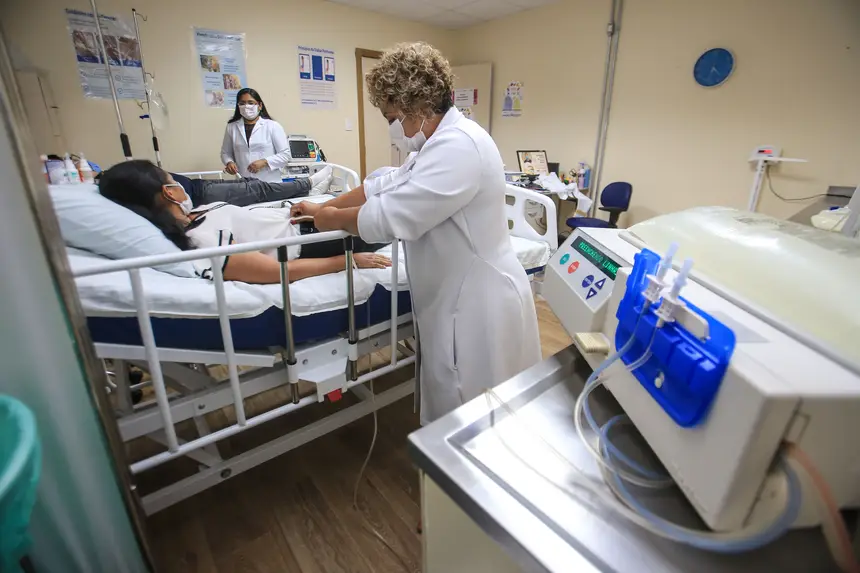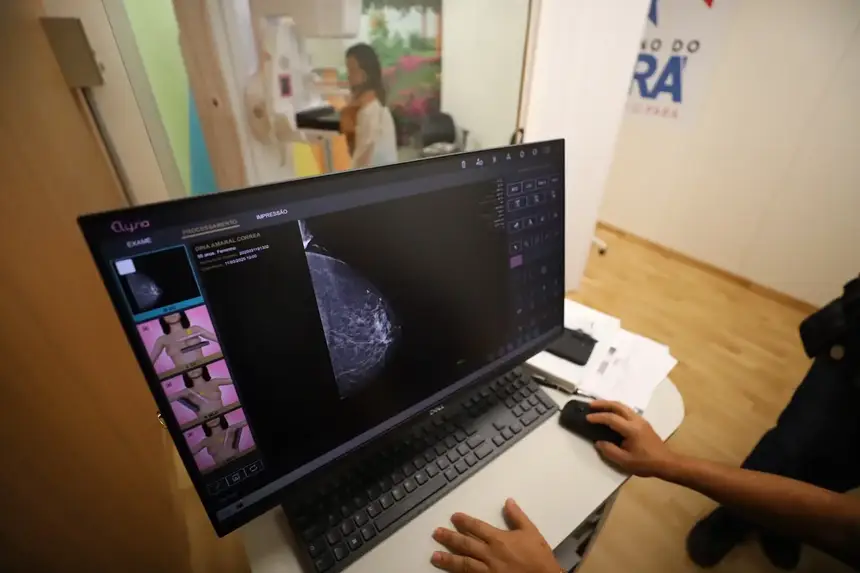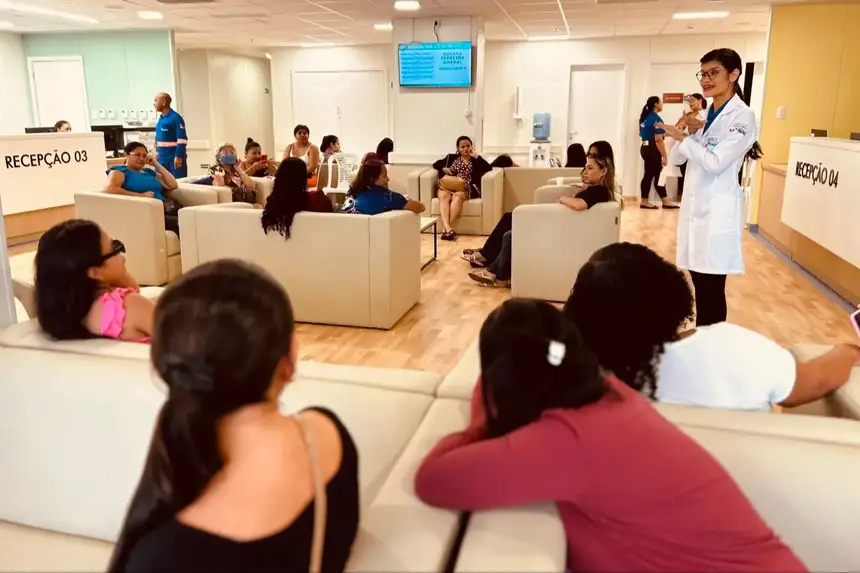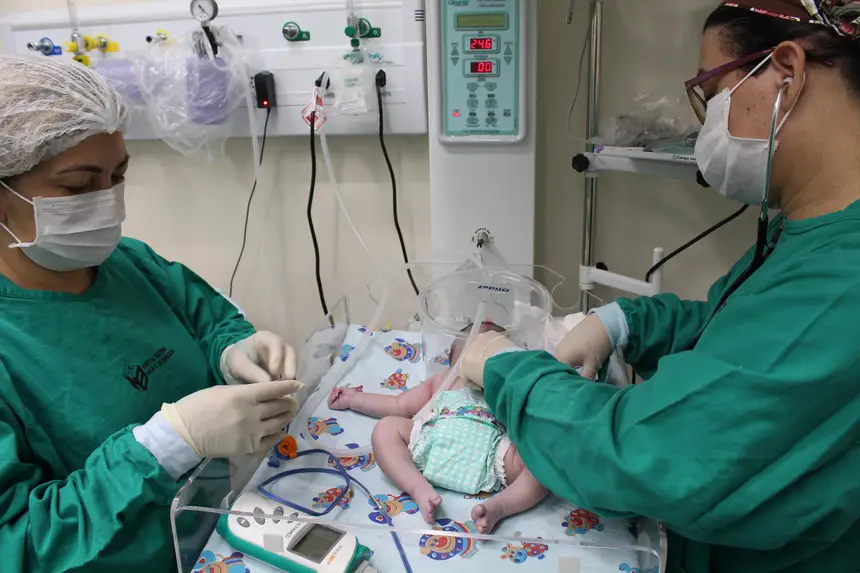Pará reinforces commitment to women's comprehensive health and reduction of maternal mortality
On International Women's Health Day, the State presents advances in assistance and prevention across all regions
Ensuring all health care for women, with the strengthening of the assistance network in the State, is one of the main commitments of the current administration of the Government of Pará. This Wednesday (28), International Women's Health Day and National Day to Combat Maternal Mortality, the State Department of Public Health (Sespa) highlights the advances in public policies aimed at ensuring comprehensive, dignified, and accessible health for all women in Pará.
The date serves as a milestone for reflection and mobilization around gender inequalities and the need to face historical challenges, such as the reduction of maternal mortality - still a significant reality in Brazil and Pará. Since 2019, the State Government has taken on this commitment by signing the Pact for the Reduction of Maternal Mortality, which has driven a series of strategic actions to ensure access to quality prenatal care, safe obstetric assistance, and the strengthening of the women's health care network.
This effort has been reflected in the numbers. Pará reduced maternal deaths from 131 in 2020 to 76 in 2024. Another important advance was the expansion of access to reproductive planning. In 2023, the number of state hospitals authorized to perform tubal ligation increased from 1 to 9. In addition, more than 26,000 Pap smear tests were performed on women aged 25 to 64 and 5,314 mammograms on women in the priority age group of 50 to 69 years. These data reflect the importance of preventive actions in combating cervical and breast cancers.
The state coordinator of Women's Health at Sespa, Nicolli Mendes, emphasizes that the public policy is centered on four main axes: attention to women in reproductive planning, prenatal care, childbirth, and birth; prevention of cervical and breast cancer; climacteric; and care for women victims of violence. “The actions encompass all stages of a woman's life, with specialized oncological services and early diagnoses present in all regions of the State,” she highlighted.
In addition to care during pregnancy and childbirth, the state policy includes other essential fronts, such as attention to cardiovascular diseases - which rank among the leading causes of female mortality - and mental disorders, often exacerbated by social inequalities and the multiple roles women play.
Reproductive justice and expanded access to contraceptive methods
The Government of Pará has also invested in expanding the availability of contraceptive methods, especially long-acting reversible contraceptives (LARCs), promoting reproductive justice and reducing unplanned pregnancies, particularly among adolescents. For the first time in the State, primary and secondary contraception has been offered not only in hospital units but also in outpatient units, facilitating access to qualified information and the right to choose regarding reproduction.
The strategy prioritizes women who frequently interact with the State's health services, especially in the postpartum and post-abortion periods. In these cases, patients receive contraceptive guidance and have the option of having a copper IUD inserted during hospitalization or in outpatient follow-up. This measure also benefits women awaiting tubal ligation, helping to prevent unwanted pregnancies during this waiting period.
Hospital da Mulher do Pará: a reference in care and specialized service
An important milestone in the state policy for women's health was the inauguration of the Hospital da Mulher do Pará, in Belém, by Governor Helder Barbalho. The unit is dedicated exclusively to women's health, including trans men and women, and has become a reference for emergency and urgent care for women in situations of sexual and domestic violence, in addition to offering specialized assistance in various medical areas.
Since March 8, the hospital has performed:
- 1,172 admissions
- 974 surgeries
- 5,982 consultations
- 25,112 exams
- 31 attendances for women in situations of violence
The unit, which has 11 floors, has 120 beds, with 100 designated for hospitalization and 20 for the Intensive Care Unit (ICU). The structure allows for consultations, exams, and surgeries, with all services regulated by the state health system. Among the services offered are laboratory analyses, collection of preventive exams (Pap smear), and imaging tests such as X-rays, ultrasound, mammography, tomography, MRI, and echocardiogram - all performed with modern equipment and conducted by qualified professionals.
Available medical specialties include: cardiology, general surgery, reconstructive plastic surgery, vascular surgery, dermatology, endocrinology, pain clinic, gynecology, mastology, neurosurgery, neurology, otorhinolaryngology, and urology. The hospital also offers services in physiotherapy, nursing, social work, and psychology, composing a comprehensive and humanized care approach.
The general director of the unit, intensivist physician Nelma Machado, emphasizes the importance of specialized attention. “The hospital plays a fundamental role in promoting women's health, offering qualified support and assistance for the medical and social issues that directly impact the quality of life of this demographic,” she stated.
Patient Ana Melissa Loureiro, 30, a resident of the Pratinha I neighborhood in Belém, shared her experience with the unit. “I have always had problems with my uterus and ovaries. Even after surgery, the pain returned. I started to present more severe symptoms, such as prolonged bleeding. I was referred to the Hospital da Mulher and am now undergoing investigation. This hospital is very good and important. Sometimes we go to other hospitals and cannot get a diagnosis. Here, the care is different,” she said.
More advances ahead
It is expected that in the coming months, the Hospital da Mulher do Pará will incorporate new services, expanding access to prevention actions, health education, and specialized assistance — fundamental pillars for promoting the well-being and health of women in Pará.
The State Secretary of Health, Ivete Vaz, reinforces the administration's commitment to women's health. “Caring for women's health is caring for the health of society as a whole. Our commitment is to ensure that all women in Pará have access to comprehensive, qualified, and humanized assistance that respects their choices and needs at all stages of life. We will continue to advance in the implementation of public policies that promote equity, prevention, and effective care, reducing inequalities and ensuring the protection of women's lives in our State,” she concluded.
Text: Bianca Botelho - Ascom Sespa.













